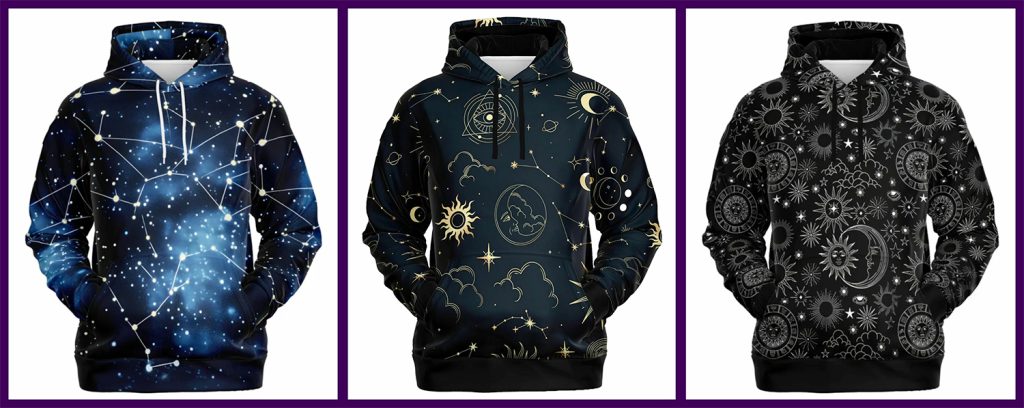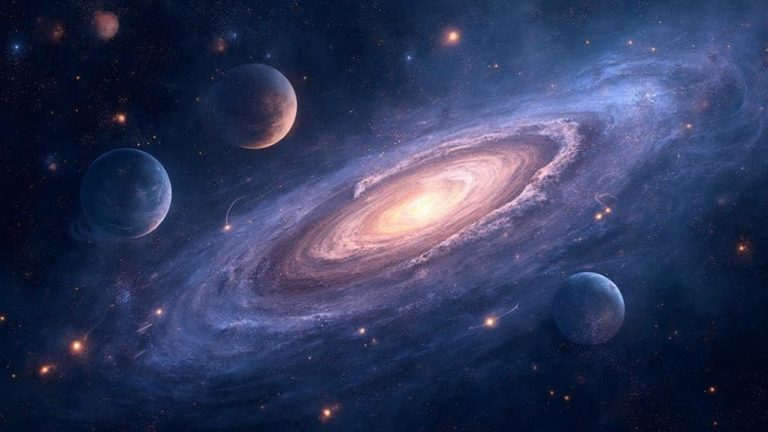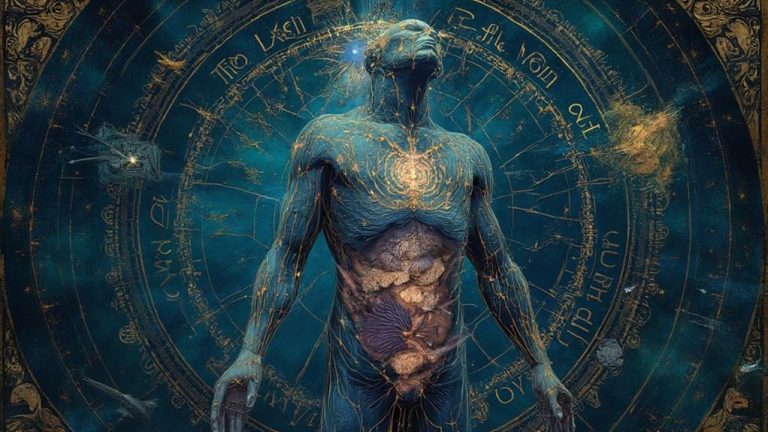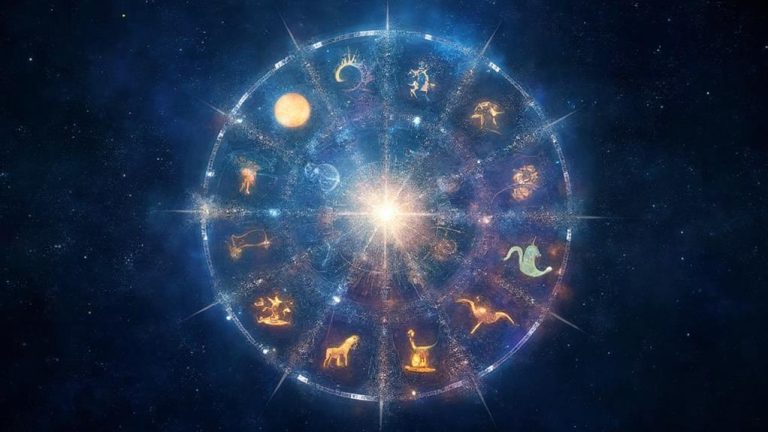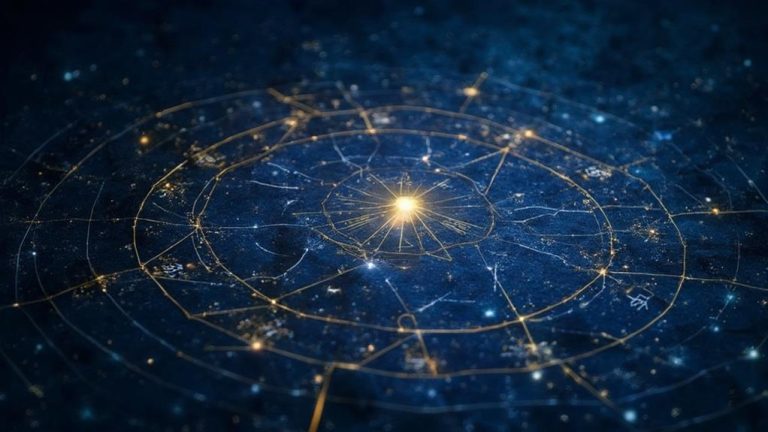How Do Celestial Movements Affect Human Behavior?
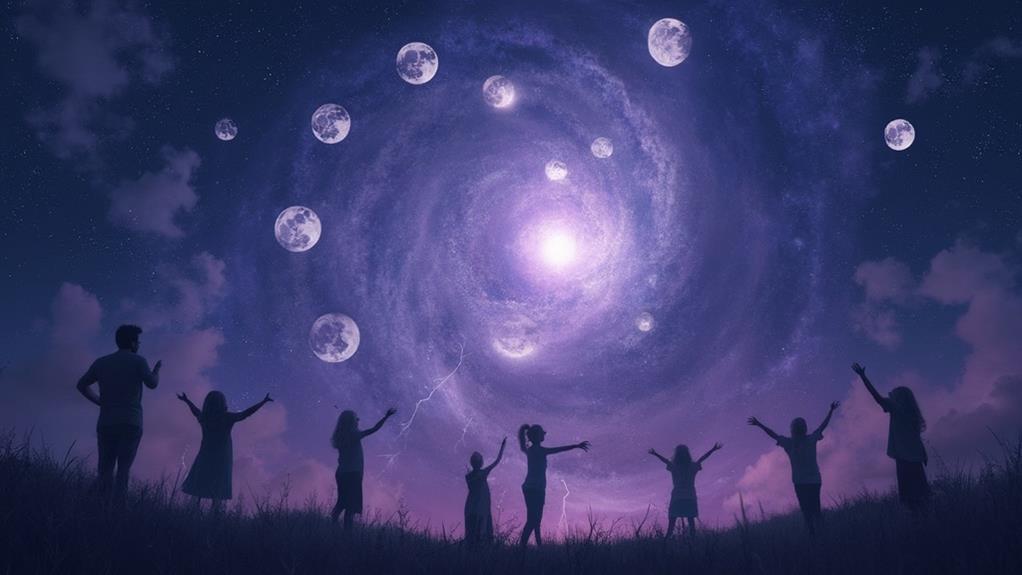
Celestial movements, like moon phases and solar storms, can impact human emotions, sleep, and behavior subtly but significantly.
How Celestial Forces Affect Your Body
These forces influence body fluid balance and brain activity. This means you may experience mood swings or changes in energy levels without realizing the cosmic origins.
If you’ve felt different during a full moon or when seasons change, you’re not imagining it. The moon’s gravitational pull on your body’s fluids can cause shifts in how you feel. Alongside this, solar storms can disrupt your brain’s electrical rhythms.
The Moon’s Impact on Sleep

The phases of the moon impact sleep by reducing melatonin production, making falling asleep harder, especially during full moons. Then, you may take 5 minutes longer to fall asleep and lose about 20 minutes of sleep overall.
These effects on your sleep cycle result from measurable changes in brain activity that affect alertness, sleep quality, and even temperature regulation. Your body might wake up 30% more often past midnight due to disrupted REM sleep.
Table: Moon Cycle and Sleep Effects
| Moon Phase | Common Sleep Effect |
|---|---|
| Full Moon | Difficulty falling asleep, reduced deep sleep |
| New Moon | Calmer, more restorative sleep |
Solar Storms and Mental Health
Solar storms can have a surprising influence on our mental health by disrupting the brain’s alpha waves, potentially leading to anxiety, depression, and mood swings. These disruptions are more pronounced during strong geomagnetic storms rated G3 or higher by NOAA’s space weather scale.
One study found a 17% increase in mental health-related hospital admissions during solar storms, particularly within 24-48 hours after they begin. If you monitor space weather forecasts, you can take proactive steps like ensuring regular sleep and reducing screen time to minimize these effects.
Helpful Tips During Solar Activity
- Monitor solar storm forecasts to anticipate potential mood changes.
- Increase omega-3 intake as it supports brain function during electromagnetic disruptions.
- Reduce exposure to electronic devices that can further amplify the storm’s effects on your brain’s electrical activity.
Seasonal Light and Mood Changes

Seasonal light changes, especially in winter, can shift your circadian rhythms and neurotransmitter balances. Less daylight increases melatonin and reduces serotonin, paving the way for Seasonal Affective Disorder (SAD), which affects up to 10% of people in northern regions.
Exposure to blue light (460-480 nm) helps regulate melatonin and mood. However, during winter months, you get up to 30% less blue light, which disrupts sleep and serotonin production.
How to Combat SAD
- Use a light therapy box delivering 10,000 lux for 30 minutes each morning.
- Supplement with vitamin D, especially in regions with little sunlight exposure.
- Engage in regular physical activity to boost serotonin production naturally.
Gravitational Forces on Human Physiology
Gravitational forces from celestial bodies like the moon influence human physiology. Small changes in fluid dynamics, heart rate, and blood pressure can occur during lunar phases or planetary alignments.
Bone density and muscle tone also display minor fluctuations that correspond with the moon’s cycle, though these changes are subtle and require sensitive equipment to detect.
Circadian Rhythms and Planetary Motion
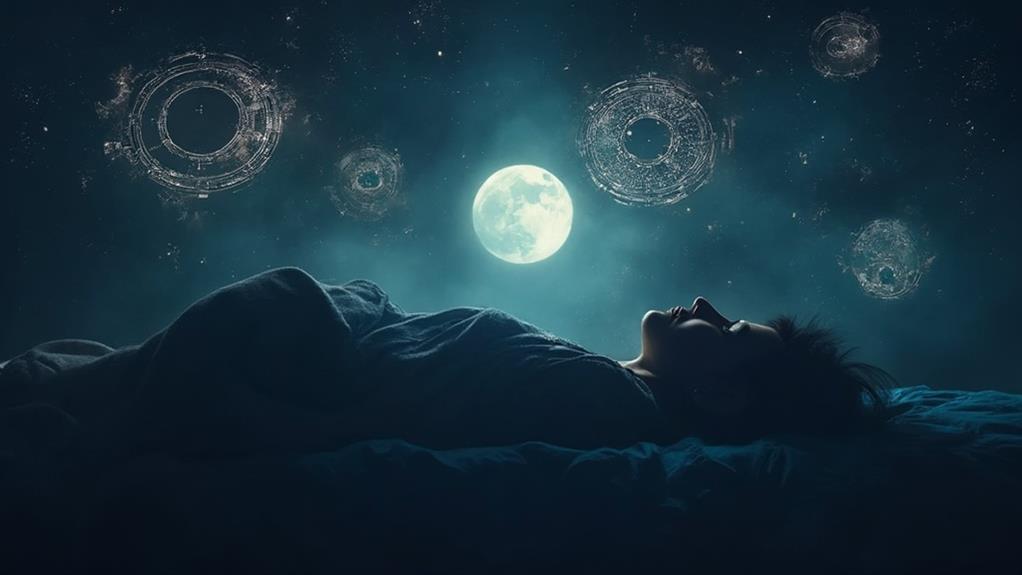
Human circadian rhythms are intimately tied to planetary motion, especially the Earth’s 24-hour rotation and the moon’s gravitational pull. Our internal clocks depend on sunlight to regulate melatonin.
Seasonal changes also influence your circadian timing. Shorter winter days, for instance, can reduce daytime alertness and shift sleep patterns. Moreover, the way lunar cycles influence sleep illuminates how we have evolved to respond to these celestial rhythms.
Frequently Asked Questions
Can Celestial Events Influence Human Fertility Cycles and Conception Rates?
There’s no reliable scientific evidence showing that celestial events like lunar phases affect human fertility or conception rates. Most beliefs regarding these links are anecdotal rather than supported by research.
Do Meteor Showers Affect Human Electromagnetic Fields and Decision-Making Abilities?
No, meteor showers have no effect on human electromagnetic fields or cognitive performance. There’s no scientific basis supporting these claims.
How Do Planetary Alignments Impact Interpersonal Relationships and Social Behavior?
No scientific data suggests that planetary alignments influence human relationships or social behavior. The gravitational forces of distant planets are too weak to affect us on an individual level.
Are Birth Dates Under Specific Constellations Linked to Personality Traits?
Research has found no link between astrological constellations and personality traits. Most beliefs about personality based on zodiac signs are rooted in pseudoscience. Despite the lack of evidence, many people continue to find comfort and meaning in decoding celestial body meanings to guide their decisions and understand themselves. However, experts argue that these interpretations are often vague and rely on confirmation bias, where individuals see what they want to believe. As a result, astrology remains a popular yet scientifically unsupported framework for exploring personality and behavior.
Does Lunar Eclipse Timing Affect Human Metabolic Processes and Digestion?
No, lunar eclipses don’t impact human metabolism or digestion. Scientific studies have not found any evidence connecting these celestial events with internal body functions.

